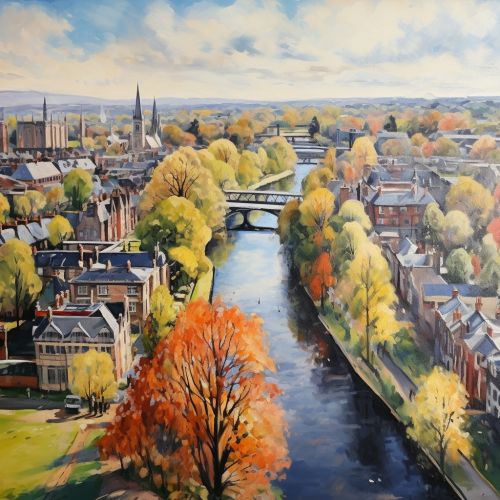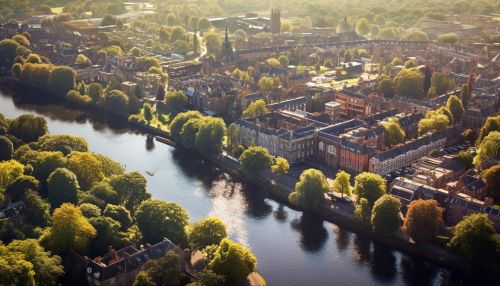University of Cambridge
History
The University of Cambridge is a collegiate public research university in Cambridge, England. Founded in 1209 and granted a royal charter by King Henry III in 1231, Cambridge is the second-oldest university in the English-speaking world and the world's fourth-oldest surviving university.
The history and influence of the University of Cambridge have made it one of the most prestigious universities in the world. It grew out of an association of scholars who left the University of Oxford after a dispute with the townspeople. The two 'ancient universities' share many common features and are often referred to jointly as 'Oxbridge'.


Colleges
The university is made up of 31 semi-autonomous constituent colleges and over 150 academic departments, faculties, and other institutions. Each college is an independent institution with its own property and income. The colleges appoint their own staff and are responsible for selecting students, in accordance with university regulations. The teaching of students is shared between the colleges and university departments.
Academics
Cambridge is a member of several academic associations and forms part of the 'golden triangle' of English universities. The university has educated many notable alumni, including eminent mathematicians, scientists, politicians, lawyers, philosophers, writers, actors, monarchs and other heads of state. As of October 2020, 121 Nobel laureates, 11 Fields Medalists, 7 Turing Award winners, and 14 British Prime Ministers have been affiliated with Cambridge as students, alumni, faculty or research staff.
Research
Research undertaken by the university is highly regarded. In the 2014 Research Excellence Framework assessment, Cambridge was ranked first in the country for research submitted. This is an indication of the high quality of the research carried out by the university and its colleges.
Student life
Student life at Cambridge is rich and varied, with students engaging in everything from rowing and theatre to politics and music. The university is also home to over 100 libraries, which hold more than 15 million books in total.
